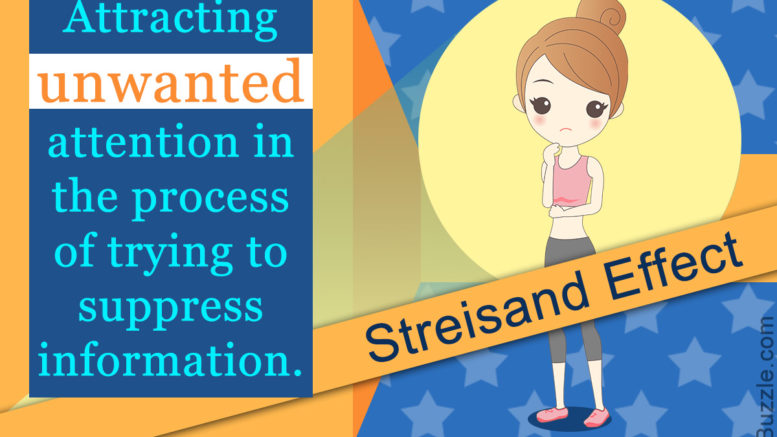One of the effects of the internet has been to metaphorically slay a great many of the traditional gatekeepers of information that used to be so powerful. When for example the only way to get a story out or voice an opinion to a large audience, was to either own or edit a newspaper the number of voices that could be heard was naturally restricted by the nature of the medium. A newspaper, its owners and staff, because they were the sole means of distributing it a story could also be leaned on by various interests, such as political ones to spike stories or spin them in a more positive way for the subject. Censorship could be imposed willy-nilly at times for good reasons, as in war time Britain or for bad ones such as to protect the public reputations of celebrities.
This has now all changed and the ability to voice an opinion, whether that be opinions that are good or bad, based in truth of completely devoid of it, has been democratised. In fact information transfer has evolved to an extent that this area would be unrecognisable to those working in the media, legal and political fields of early 20th century.
Attempts at censoring the mockery of and disgust towards public political, religious, cultural, community and business figures can, in this highly decentralised environment, can backfire spectacularly. This is what is sometimes referred to as the Streisand Effect, named for the American singer Barbara Streisand, who tried to restrict access to images of her beachfront home. This act of petty censorship on the part of Ms Streisand caused thousands upon thousands of people to share the image objected to by Ms Streisand. They did this for a number of reasons some of which included doing it for a laugh at Barbara Streisand’s expense and as a protest against what they may have seen as unwarranted censorship.
A good example of this Streisand Effect in action is the banning of the British counter jihad activist Tommy Robinson from Twitter. A number of groups in both the Muslim community and activists from the Left, campaigned to get Tommy Robinson removed from this platform. Some of these Islamic groups and those on the left, publicly celebrated this removal, but all that happened is that this banning brought Mr Robinson a level of extra publicity that money could not buy. The banning from Twitter that many groups had worked so hard to achieved has blown up in these group’s faces big time. His ban has given him extra credibility among his supporters and has helped him gain more supporters. The lesson from the Tommy Robinson case is that banning people or their views can bite the censors on the backside, as it helps to attract those individuals for whom forbidden information is interesting information.
We are living in a time when an attempt to take down some mockery of a public figure such as a politician, something that would been relatively easy to do in the days of hot metal newspaper production, is less easy today. Whereas once a public figure who objected to the way that they were being portrayed could ‘have a word’ or have their lawyers ‘have a word’ with a newspaper owner to hide the story, this is not the case today. The censorship of atheist comic Pat Condell just caused a rush by his fans to the censorship free video platform Bitchute so that they could view the ‘offending’ video.
The removal of Britain First from Facebook also doesn’t seem to me to have dampened the ardour of this groups supporters, at least from what I can see on Gab.ai, and such censorship will probably have gained them extra supporters from those angered at their voice being silenced. There are now multiple platforms available for those excluded from legacy social media such as Twitter and Facebook where they can speak freely whether they are speaking sense or nonsense or even truth or lies. Websites can be backed up, archived and redistributed if and when they are attacked or face a catastrophic technical problem. As we saw from the case of the, in my view odious, Daily Stormer website which lost its original hosting after the Charlottesville incident in the USA, such drastic actions do not always have the desired effects. Stormfront have not been silenced despite the actions taken against them and the attempt to censor them brought them a level of publicity that Stormfront neither deserved or could gain by other means. The story became about how Stormfront had been censored and also how they had thereby been removed from public challenge on their views instead of what Stormfront were alleged to have done or said, which should have been the pertinent issue. Anyone who is familiar with my writing will know that I despise neo-Nazis and I watched how censorship of this particular group helped to publicise them further with a sense of despair.
Another example of censorship gone wrong is the issue of Islamic Rape Gangs. The attempts by the authorities or Lefist or Islamic groups to hide or play down this issue has further helped to publicise the existence of this problem. This has caused considerable anger among members of the public who are distressed not only about the fact that these rape gangs exist but have been covered up by the authorities for decades.
This has resulted in the situation where there is mockery and derision every time a senior police officer comes out and tries to claim that these rape gangs are a historical problem going back centuries or politicians make jokes about the victims of these gangs. The act of trying to censor information or to dissemble about these gangs has ironically helped to publicise their existence and people are increasingly turning on those who are instituting the censorship, much to the chagrin of both police and politician alike. The information about these gangs when chased off of platforms such as Twitter and Facebook reappears elsewhere defeating the object of those who are inclined to censor information about these heinous crimes.
We live in a shared information culture these days where it is much harder than it was before to hit the big red censorship button without creating an adverse effect for the censor or who they may be working for. Information censored on one platform appears, within a few days or weeks at most, on another, and in a multiplicity of jurisdictions. Such information can be put there on these alternative platforms by the original creator, or by uninvolved or unlinked third parties, who are supporters of the silenced voice.
The Streisand Effect and the ability for individuals to connect to each other in a manner unprecedented in human history, is probably here to stay at least for the foreseeable future. Because of this phenomenon of the Streisand Effect, those intent on censoring should consider whether the act of censorship will make things worse for them or their cause in the long run, as it would increase the likelihood that such information would be shared because it had been censored. To give a personal example: I would be quite within my legal and moral rights to make a big fuss over the lunatics online who call me all manner of unpleasant, racist or otherwise offensive names, or who tell me that they and their co-religionists will do unpleasant things to me or who smear me. However, I choose not to do this as if I did I would be playing a part in publicising this sort of stuff to a greater extent than if I just went ‘meh’ to it. Kicking off about this stuff would encourage others to also distribute it and I would be shooting myself in the foot badly to give extra publicity to this sort of shit by moaning too loudly or too often. Until words or mockery or slagging off, cross the line into the sort of credible threat of violence that could be easily understood by the proverbial ‘man on the Clapham Omnibus’, I choose not to make a bad situation worse.
I have become much more of a free speech fundamentalist than I ever was in the past precisely because I recognise that my right to speak is tightly bound up with letting others speak as well, even though not everything that everyone says is to my liking. I try to politely challenge those with opposing views where I can or ignore them if necessary or mute them if they give me cause to do so on social media, if they are a major irritant. However what I am careful not to do and try not to do is to behave in such a manner as it invites the entry of the Streisand Effect.




